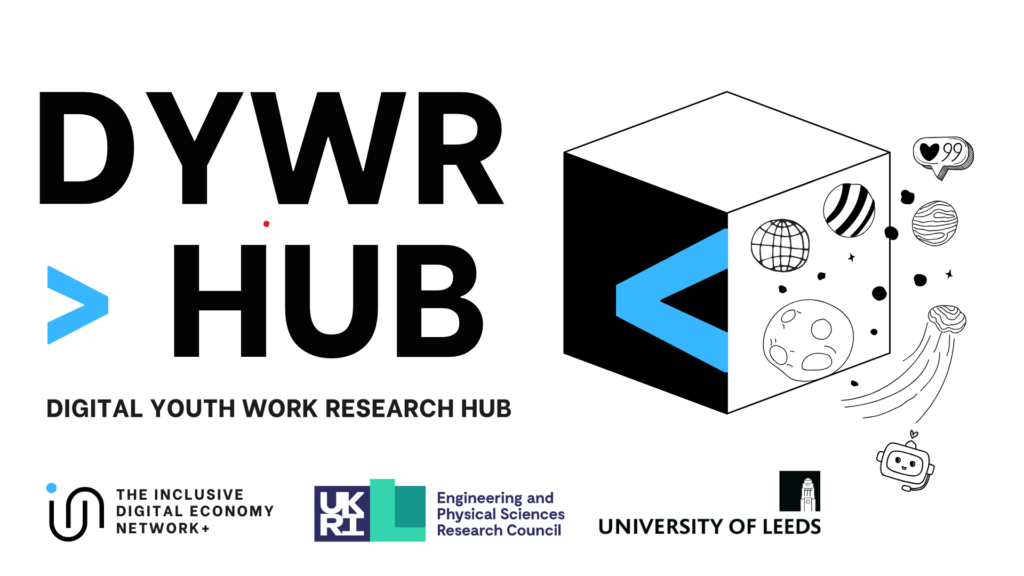
The Digital Youth Work Research Network
is hosted by the University of Leeds within the INCLUDE+ Network, and represents an initiative aimed at exploring the intersections of equity, inclusion, digital technologies and youth work.
Our network seeks to foster an environment of knowledge and practice co-creation between researchers, youth workers, young people, policymakers, tech organisations, and other relevant stakeholders.
Our work is grounded in this area’s existing research and practice guidelines. Dr Alicja Pawluczuk, who leads the work of the network, has been and continues to be proactively involved in the work of national and international research and policy networks (e.g., the Europan Academy of Youth Work, SALTO Youth, Digital Youth Work Network, Youth Link Scotland, and Youth Partnership – European Union and Council of Europe).
You can learn more about Dr Alicja Pawluczuk’s previous work in the area of digital youth work on this page.
What is digital youth work?
Digital youth work refers to the utilisation of digital tools and methodologies to support the personal and social development of young people. It encompasses a broad array of activities that utilise digital technology, including social media, online gaming, digital making, and virtual reality, to engage young individuals in educational, social, and creative endeavours.

The primary aim of digital youth work is to enhance young people’s capacity to actively participate in society, improve their skills for the contemporary digital world, and foster their overall well-being. This approach recognises the significant role that digital technology plays in the lives of young people today and seeks to leverage these tools to support their development in positive and meaningful ways.
Digital youth work can take place in a variety of settings, including schools, youth centres, and online platforms. It involves not only the use of digital tools for communication and engagement but also the teaching of digital skills and critical thinking about digital media and technology.
DYWR.HUB Timeline
Over the next few months, we’ll work on getting a clear picture of Digital Youth Work across Europe and beyond. We aim to keep an eye on both the ideas and the actual work being done in this area.
We’re hoping to co-design our DYWR HUB with the help of people involved in the field.
- March to June 2024 – Co-designing of the network and aims
- June 2024 – The official launch of the DYWR HUB
- June to September 2024 – Activities informed by the DYWR HUB co-design process
- 2025 onwards – TBC

